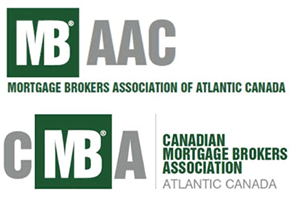
Atlantic Canada Mortgage Trends – Fall 2024
August 30, 2024 | Posted by: Keith Leighton

Atlantic Canada Mortgage Trends – Fall 2024
The mortgage market in Atlantic Canada is currently influenced by several trends. While there's been a year-over-year increase in housing prices across the region, there's also a rise in unemployment and mortgage arrears, indicating some financial strain among homeowners. Sales have seen a slight decline quarter-over-quarter, but the market is still experiencing overall growth year-over-year. Additionally, there's been an increase in new listings and construction, suggesting a gradually expanding housing market despite economic challenges. Here's an overview of the key trends:
1. Interest Rates: Mortgage rates remain elevated compared to historical norms. Fixed mortgage rates have stabilized, and there is potential for further decreases, especially if economic conditions lead to more aggressive rate cuts by the Bank of Canada.
2. Housing Market Activity: Atlantic Canada remains a seller's market, driven by relative affordability and strong population growth due to inward migration. Price growth has been subdued, with recent months showing flat or minimal increases in home prices in Nova Scotia, New Brunswick and Newfoundland.
3. Economic and Regulatory Environment: Rising unemployment rates and a slight increase in mortgage arrears indicate some financial strain among homeowners. However, these factors have not significantly disrupted the housing market's overall stability. As the Bank of Canada potentially cuts rates further in 2025, this may eventually ease the financial strain on homeowners and increase demand in the housing market.
4. Mortgage Delinquency and Arrears: There has been a slight increase in mortgage arrears in the region, reflecting the financial strain on some homeowners due to higher borrowing costs. This trend aligns with the national picture, where delinquency rates have risen but remain relatively low.
5. Market Outlook: The overall outlook for 2025 suggests a gradual recovery in the housing market as interest rates potentially decline. However, affordability remains a concern, particularly for first-time buyers, due to the combination of high home prices and elevated mortgage rates.
Overall, Atlantic Canada's mortgage market is relatively stable, however, it is characterized by modest price growth, and a balanced market condition supported by strong demand and manageable supply levels. Indications are there for lower mortgage rates in the near future, though affordability remains an ongoing challenge. Homebuyers should be vigilant about shopping for the best mortgage products and rates while considering the implications of both fixed and variable rates in the current economic climate. Contact your DLC Ideal Mortgage professional for expert advice.
